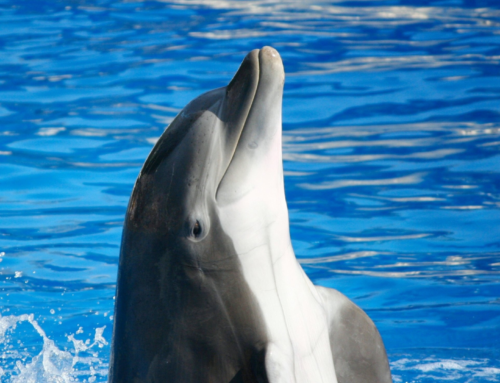Science has done so much to shape the world that it is hard to imagine a time when humans lived without scientific advancements. It has also had some very negative effects, such as pollution and the destruction of the environment. There are some who believe that science is just not compatible with conservation and care for the earth anymore because of this – they want the Earth back to before modern science. But there are others who see that science can be used as a tool to preserve the environment. This blog article will discuss both sides – one showing how science has impacted conservation efforts and one showing how it has not.
The role of science in the conservation of the environment has been debated for many years. Some people believe that science should not play a role in environmental protection, while others believe that it is essential for sound management decisions. It is important to understand the goals of science in order to make an informed decision about its role in conservation. The main goal is to gather empirical evidence and use it to develop explanations for phenomena. This information can then be used to improve our understanding of the natural world and make better management decisions.
Science can help us identify risks and threats to habitats and species, help us develop effective conservation strategies, and provide critical baseline data on which to build future monitoring programs. It also helps us understand how humans are affecting the environment, which can help us devise more sustainable practices. Ultimately, good science provides policymakers with the best available information so they can make informed decisions that protect our environment and biodiversity.
What Is Conservation of the Environment?
One of the most important roles of science in conservation is the identification and characterization of environmental problems, which can help guide sound decisions about how to address them. For example, scientists may use data from surveys and experiments to determine how much a particular fish species is reproducing or what kind of pollutants are harming ecosystems.
For instance, environmental monitoring software, available at https://envirosuite.com and similar websites, enables businesses to adopt more sustainable practices and maximize efficient resource utilization. Similarly, other technological innovations like remote sensing tools and Geographic Information System (GIS) mapping play a crucial role in monitoring changes in landscapes and identifying potential threats to biodiversity.
Another key role of science is informing policymakers about the best ways to protect biodiversity. For example, scientists may work on models that simulate how different land-use changes will affect plant and animal populations. This information can then be used to develop regulations or policies that benefit everyone involved in conservation.
From farm owners purchasing farms for sale to continue their agricultural legacies, to environmentalists striving to safeguard specific habitats, to business owners aiming to minimize environmental harm in their ventures, science is instrumental in advancing conservation initiatives. By deepening our understanding of the environment, science guides us towards effective measures for its preservation.
In addition to identifying problems and guiding policy decisions, science also plays a critical role in illuminating potential solutions for conservation challenges. When it comes to maintaining the health of different ecosystems, several constructive steps can be taken based on scientific evidence. These include establishing protected zones to reduce pollution and habitat destruction, introducing native vegetation to shorelines, monitoring water and air quality and moderating contaminants, and managing invasive species spread.
Another science-based solution that shows promise is the use of pond fountains and water circulators. Studies have demonstrated that these devices can promote the growth of beneficial bacteria, balance algae levels, and maintain healthy oxygen circulation in ponds and other small bodies of freshwater. By gently moving the water and breaking up stagnant zones, they create a more habitable environment for native plants, insects, amphibians, and fish. With the biodiversity of inland waters being threatened worldwide, innovative conservation methods warrant further research and application.
How Science Helps Conservation
Science is a powerful tool for conservation, helping us to understand and predict how natural resources will Science is a powerful tool for conservation, helping us to understand and predict how natural resources will be used, and to find ways to protect them. Scientists have helped to develop theories about how populations of animals and plants are affected by the environment, and they use this knowledge to create conservation plans. They also study the effects of climate change on the environment, so that we can make informed decisions about how to handle it. Science is also instrumental in providing information about new threats to our environment. Scientists have discovered new diseases that can be harmful to plants and animals, and they are working hard to develop strategies for preventing or controlling them. Alongside this, scientists have also formulated new ways of combatting deforestation by introducing solutions for large-scale revegetation, which includes erosion control, urban greening, and native planting — more about this can be learned at Erizon.
Research and Studies Done by Scientists
There is a great deal of research and studies done by scientists to ensure the conservation of the environment. Studies have been done on the effects of pollution on the environment, as well as how to best preserve it. Scientists also study creatures in order to better understand their behavior and how to protect them from becoming extinct.
Additionally, scientists conduct research on plant life in order to learn how best to manage them for the benefit of all. Science is the key to conserving our environment. Without it, we would not be able to understand how our environment works and what we need to do to protect it. Science has also allowed us to develop methods of protection and restoration that have had a profound impact on the conservation of our planet’s resources.
We must continue to rely on science in order to preserve our planet for future generations, but we must also be careful not to abuse its power. We must remember that science is an instrument, not a goal in itself.




Leave A Comment